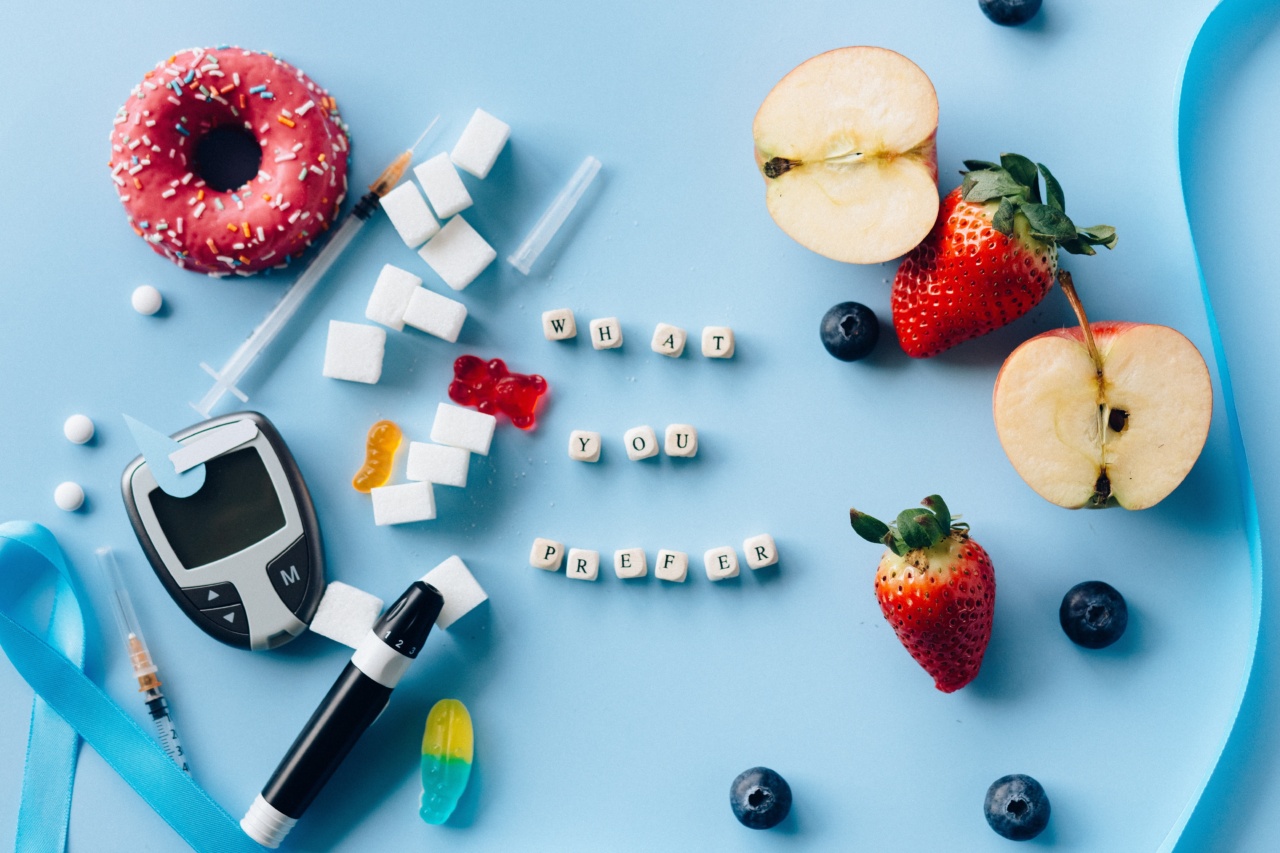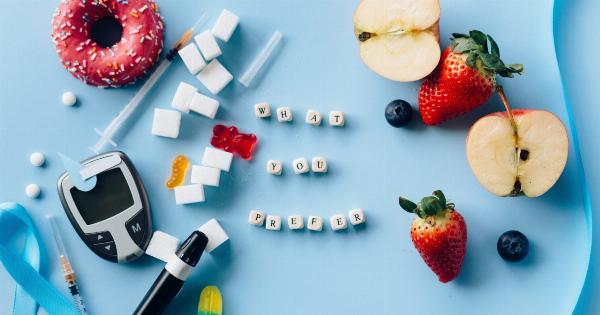Insulin resistance is a condition where cells in the body become less responsive to the hormone insulin, resulting in elevated blood sugar levels.
While insulin resistance is commonly associated with type 2 diabetes, recent studies have demonstrated a strong correlation between insulin resistance and an increased risk of cancer development and progression. In fact, some experts believe that insulin resistance may play a significant role in the development of certain types of cancer.
Understanding Insulin Resistance
To understand how insulin resistance is linked to cancer, it is essential to comprehend the role of insulin in the body. Insulin acts as a hormone that regulates blood sugar levels by facilitating the uptake of glucose into cells.
When cells become resistant to insulin, glucose cannot enter adequately, leading to high blood sugar levels – a condition known as hyperglycemia.
In individuals with insulin resistance, the pancreas compensates by producing more insulin to overcome the diminished response of cells.
This elevated insulin level, known as hyperinsulinemia, has been associated with various health issues, including obesity, cardiovascular disease, and cancer.
The Role of Hyperinsulinemia in Cancer Development
Mounting evidence suggests that chronic hyperinsulinemia stimulates the growth and proliferation of cancer cells. Insulin is known to activate the insulin-like growth factor-1 (IGF-1) pathway, which promotes cell growth and division.
Additionally, insulin also influences the production of sex hormones, such as estrogen, which have been implicated in several hormone-related cancers, including breast and prostate cancer.
Moreover, hyperinsulinemia can lead to chronic inflammation in the body. Inflammation creates an environment conducive to cancer development and can contribute to mutations in DNA, impair immune responses, and promote the growth of existing tumors.
The Impact of Sugar Intake on Insulin Resistance
A key contributor to insulin resistance is a diet high in sugar and refined carbohydrates. When you consume sugary foods or drinks, your blood sugar levels spike, triggering the release of insulin.
Over time, repeated surges of insulin can lead to insulin resistance.
Refined carbohydrates, such as white bread, pasta, and sugary snacks, are quickly broken down into glucose, causing a rapid increase in blood sugar levels.
High intake of these foods can overburden the body’s insulin response and contribute to the development of insulin resistance.
Practical Advice for Reducing Sugar Intake
If you are concerned about insulin resistance and its potential link to cancer, adopting healthier eating habits can make a significant difference. Here are some practical tips to reduce your sugar intake:.
1. Choose Whole Foods
Opt for whole foods such as fruits, vegetables, lean proteins, and whole grains. These foods are lower in sugar and higher in fiber, which helps regulate blood sugar levels and promote insulin sensitivity.
2. Read Food Labels
Become vigilant about reading food labels and watch out for hidden sources of added sugars. Ingredients like high-fructose corn syrup, dextrose, sucrose, and maltose are all different names for sugar.
3. Limit Processed Foods
Avoid or minimize your consumption of processed and packaged foods, as they often contain high levels of added sugars. These include sodas, candy, sugary cereals, pastries, and pre-packaged snacks.
4. Watch Your Beverages
Be mindful of sugary drinks like soda, fruit juices, energy drinks, and flavored coffees. Even seemingly healthy options like smoothies or bottled teas can contain high amounts of added sugars.
Opt for water, unsweetened herbal tea, or freshly squeezed juices instead.
5. Cook at Home
By cooking your meals at home, you have better control over the ingredients you use. This allows you to reduce added sugars and make healthier choices.
6. Opt for Natural Sweeteners
If you have a sweet tooth, try using natural sweeteners like stevia, monk fruit extract, or raw honey, sparingly. However, it’s still important to moderate your overall consumption of sweets.
7. Be Mindful of “Diet” Products
Many “diet” or “low-fat” products often compensate for reduced fat content by adding extra sugar. Pay attention to the ingredient list and nutritional information before assuming these products are healthier alternatives.
8. Practice Portion Control
Avoid excessive consumption of sugary treats and desserts. If you do indulge occasionally, practice portion control to avoid overwhelming your body with sugar intake.
9. Be Mindful of Hidden Sugars
Sugar can hide in unsuspecting foods such as salad dressings, ketchup, marinades, and even savory dishes. Read labels carefully and select options with minimal added sugars.
10. Seek Support
Changing eating habits can be challenging, especially when it comes to reducing sugar intake. Seek support from friends, family, or even consult a registered dietitian who can guide you through the process and provide personalized recommendations.
Conclusion
Insulin resistance is not only a precursor to type 2 diabetes but also an emerging risk factor for cancer.
By understanding the link between insulin resistance, hyperinsulinemia, and cancer progression, individuals can make informed decisions about their sugar intake. Reducing sugar consumption by adopting a healthier diet can not only help manage insulin sensitivity but also contribute to overall well-being and potentially lower the risk of cancer development.





























